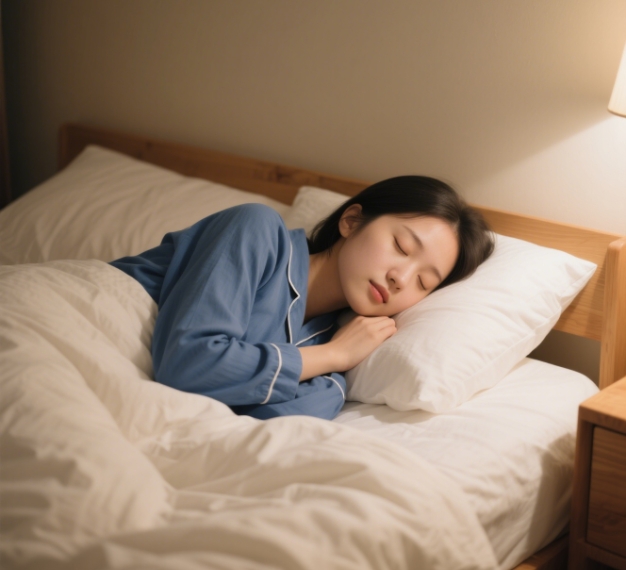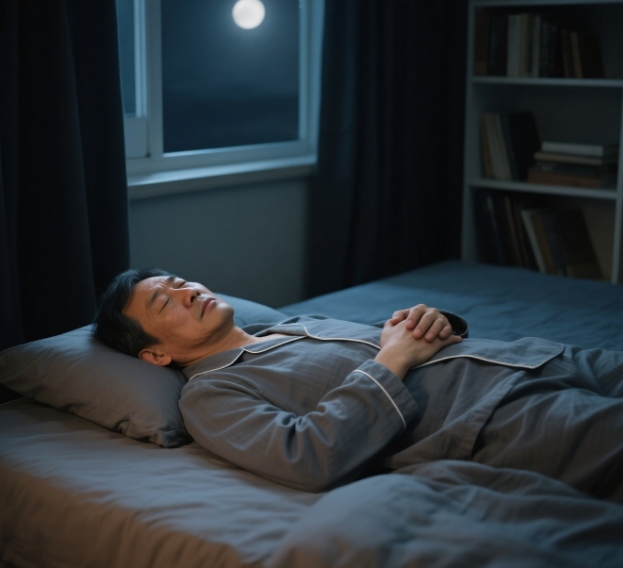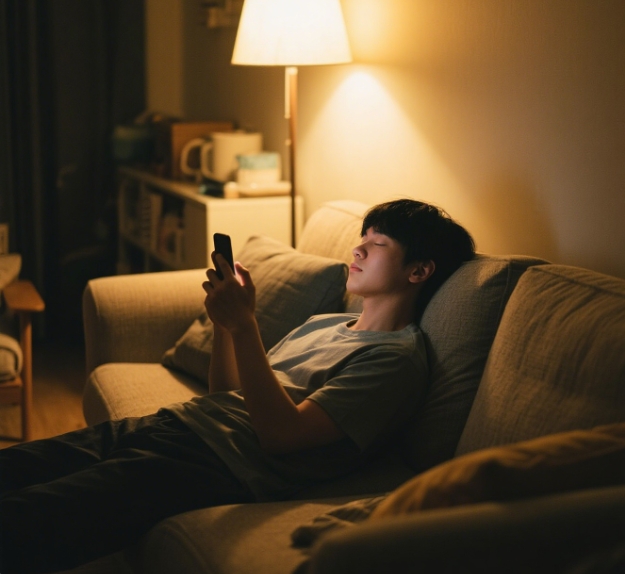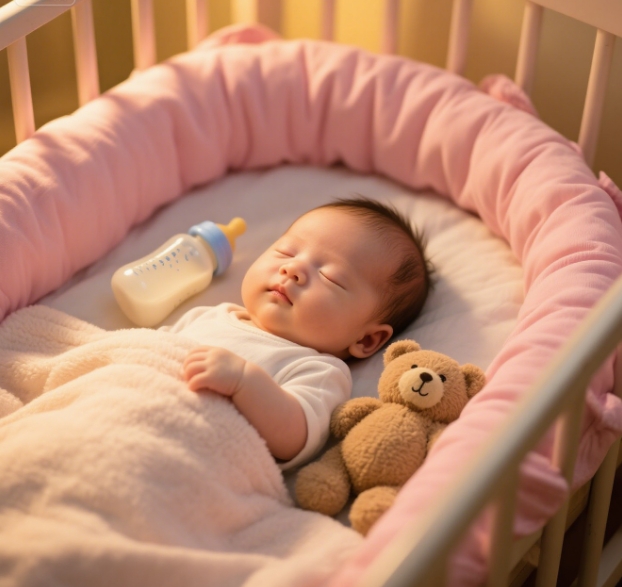Core Sleep vs Deep Sleep: Scientific Truths Behind Your Apple Watch Data

Mr Black
writer | doctor
The Confusing Wake-Up Call: Why Your Sleep Stats Might Be Lying
When Sarah's Apple Watch congratulated her on achieving 90% "core sleep" while she struggled through afternoon fatigue, it sparked a question millions ask: Why do I feel exhausted when my sleep tracker says I'm winning? The answer lies in the fundamental confusion between medical science's deep sleep and tech companies' "core sleep" - a discrepancy that could be undermining your health. Stanford sleep researcher Dr. Jamie Zeitzer confirms: "We're seeing an epidemic of data misinterpretation where wearables provide comfortingly high core sleep scores while users remain starved of restorative deep sleep."

Terminology Unpacked: Medical Reality vs. Tech Marketing
The Neuroscience of Deep Sleep
Clinically defined as NREM Stage 3, deep sleep features 0.5-2 Hz delta brainwaves that power critical biological restoration. This phase peaks during the first half of the night, characterized by:
- Synchronized neuronal firing creating detectable δ waves
- 40-60% reduction in cerebral blood flow
- Body temperature dropping 1-2°F below daytime levels
The Birth of "Core Sleep"
Apple's 2022 iOS 16 documentation introduced "core sleep" as primarily NREM Stages 1-2, measured through heart rate variability (HRV) and movement sensors. This commercial term created what Harvard neuroscientist Dr. Rebecca Spencer calls "a dangerous oversimplification":
"Wearables detect quiet periods with stable HRV and label them 'core sleep' - but this often includes light transitional sleep with minimal restorative value. True deep sleep requires brainwave measurement impossible with wrist-based sensors."

Biological Impact: Why Deep Sleep Wins
The Brain's Nightly Power Wash
During deep sleep, your glymphatic system activates like a neurological car wash. Cerebrospinal fluid pulses through brain tissues at 10x waking speed, flushing neurotoxins including Alzheimer's-linked beta-amyloid proteins. A landmark 2024 Nature study demonstrated that just 1% reduction in deep sleep duration increased dementia risk by 27% over five years.
Hormonal Symphony
Deep sleep triggers your most significant hormonal events:
- Growth hormone secretion (75% of daily total)
- Leptin/ghrelin rebalancing to regulate appetite
- Cortisol reset for stress resilience
As sleep endocrinologist Dr. Eve Van Cauter notes: "Missing deep sleep is like skipping your body's nightly maintenance shift - systems deteriorate faster."
The Core Sleep Reality Check
Apple's core sleep metric primarily tracks:
- NREM Stage 1: The 1-7 minute transition to sleep
- NREM Stage 2: Light sleep featuring sleep spindles
While these stages help transition between sleep cycles, they lack the powerful restoration of Stage 3. Relying solely on core sleep metrics creates what Johns Hopkins researchers term "the wearable illusion" - 68% of users overestimate their sleep quality based on incomplete data.
Measurement Wars: Clinical Gold vs. Consumer Tech
The Unmatched Precision of PSG
Polysomnography (PSG) remains medicine's diagnostic standard, using 22+ body sensors to track:
- EEG brainwaves
- EOG eye movements
- EMG muscle activity
- Nasal airflow
- Blood oxygenation
This comprehensive approach detects deep sleep with 95%+ accuracy, identifying disorders like apnea that wearables miss 83% of the time according to AASM data.
Why Your Watch Can't See Deep Sleep
Consumer wearables rely on photoplethysmography (PPG) - flashing green LED light into skin to detect blood flow changes. This method suffers critical limitations:
- Measures cardiovascular activity, not brain states
- Confuses stillness with deep sleep
- Fails during arm movement or poor contact
UC San Francisco's validation studies show Apple Watch underestimates deep sleep by 35-50% while overestimating light sleep by 22%.
Evidence-Based Sleep Optimization
Medical-Grade Deep Sleep Enhancement
1. Temperature Therapy: Berkeley researchers found cooling core body temperature 0.5°C via:
- Pre-bed 104°F bath (20 minutes)
- Bedroom at 64-68°F
increased deep sleep duration 23% in insomnia patients.
Sound Stimulation: A 2025 Neuron study demonstrated 50Hz pink noise pulses synchronized to slow-wave oscillations boosted: Deep sleep duration: +27% Memory consolidation: +38% Circadian Anchoring: Maintaining consistent bedtimes within 30-minute windows increased deep sleep efficiency 19% in MIT's 12-month chronobiology trial.
Wearable Wisdom: Reading Between the Lines
For Apple Watch users, translate data more accurately with these evidence-based adjustments:
- Core sleep duration x 0.3 ≈ true deep sleep (Johns Hopkins conversion formula)
- Watch for "restless gaps" - frequent awakenings during core periods indicate undetected disruptions
- Correlate sleep data with daytime fatigue using the ESS scale (Epworth Sleepiness Scale)
Dr. Zeitzer advises: "Treat wearable data as directional trends, not absolute measurements. If fatigue persists despite 'good' scores, demand professional testing."
The Orthosomnia Epidemic: When Tracking Becomes the Problem
The World Health Organization's 2024 sleep report warned about orthosomnia - unhealthy obsession with perfect sleep data. Cases increased 300% since 2020, with sufferers experiencing:
- Anxiety over minor data fluctuations
- Compulsive bedtime ritualizing
- Actual sleep quality deterioration
Columbia Sleep Center's solution: "Take weekly tech holidays. Your body's feedback - morning alertness, stable energy - remains the ultimate metric."
Beyond the Hype: Your Action Plan
1. Prioritize Deep Sleep Indicators:
- Waking without an alarm
- Minimal sleep inertia (grogginess)
- Stable afternoon energy
Demand Better Data: When wearables show: Deep sleep < 15% total sleep time Frequent nighttime awakenings Consistently low sleep efficiency scores request a clinical sleep study. Access Authoritative Resources: AASM Sleep Health Journal (peer-reviewed research) WHO's iSleepHealth assessment tool NSF's Sleep Time Calculator (personalized schedules)
The Final Verdict
As sleep pioneer Dr. William Dement famously stated: "You are not healthy without good sleep." While wearables provide fascinating data points, true sleep health requires understanding the irreplaceable role of deep sleep - a biological necessity no algorithm can fully capture. By focusing on tangible vitality metrics rather than abstract scores, we reclaim sleep from quantification and restore it to its rightful place: nature's ultimate performance enhancer.

